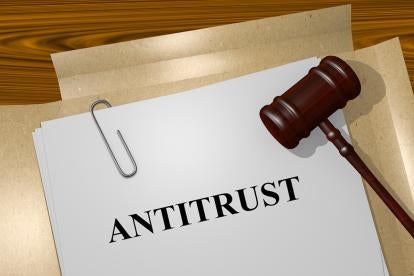Case in point, Elon Musk asked the UN for a plan where he could use his money to solve world hunger, and they gave him one, and he decided to pretend to buy Twitter insteadKind of like how the only reason we haven't solved world hunger at this point is because it would not make a billionaire richer to do so.
Is income inequality unjust, and if so, where is the injustice?
- Thread starter strawman
- Start date
More options
Export threadTwo statements that have nothing to do with each other. Also thought the idea was to reduce rents not end all homelessness.There are currently literally more empty housing units than homeless people in the USA. Clearly, it's not just a matter of too small a supply, and simply increasing supply will not solve this issue.
So if we were to say tear down higher end rentals like say single family homes and replace them with lower end rentals like let’s say apartments this would have no effect on rental prices?If there are 10 million people looking for a house with a budget of $1000/month for rent, and there are 20 million empty houses but they're all set with a rent of $1500/month, then the landlords can choose to lower their rent to have some income....Or they can just let their houses stand empty, advise people to co-house, etc.
There's a glut of high-priced housing units and a shortage of smaller and especially cheaper housing units at the moment. New builds, though, have to comply with ecological restrictions, zoning restrictions, etc etc (some of which are not as strict in the USA as elsewhere, but still) and this drives up prices. In Belgium, finding a spot where it's legal to build a new house is becoming a problem - we're too built up and we want to restrict further loss of open space to buildings. Therefore, whenever someone does have a plot of land zoned for housing, they're more likely to put up a block of 6 or 8 apartments than a single family house. Much higher return. Either way, newly built housing has to be nearly energy neutral (BEN is the literal term used meaning exactly that - "almost energy neutral"), either by producing a large part of their own energy (solar panels, wind turbine, water wheel,...) or by being isolated enough not to lose much. Practically, they need both. This drives up construction prices, along with the current shortage of some materials and, of course, increasing labor costs. Building a "cheap" or "affordable" house simply isn't worthwhile, profit-wise.
In the US, house prices have skyrocketed, for a number of reasons, one of which is greatly reduced first home ownership with a large part of the market falling into the hands of corporate real estate agencies which are interested only in high profits and have pushed their prices on everything up as high as they can go. There's been a visible (in charts) move of people to houses one or two categories "down" from where they could've gone a decade earlier, thus leaving more high-end properties empty and low-end properties with high demand and the lowest incomes to fall out of the housing market all together.
Didn't California threaten to build a whole bunch of housing for homeless people if the luxury home builders decided to keep insisting on only building luxury housing?So if we were to say tear down higher end rentals like say single family homes and replace them with lower end rentals like let’s say apartments this would have no effect on rental prices?
--Patrick
I remember them trying to make little villages of tiny homes for the homeless. Don’t know how that’s turning out.Didn't California threaten to build a whole bunch of housing for homeless people if the luxury home builders decided to keep insisting on only building luxury housing?
--Patrick
So you're allowed to generalize and idealize but I'm not?Two statements that have nothing to do with each other. Also thought the idea was to reduce rents not end all homelessness.
So if we were to say tear down higher end rentals like say single family homes and replace them with lower end rentals like let’s say apartments this would have no effect on rental prices?
Who's this "we"? "We", the government, to confiscate land with villas on them, tear them down, and put up communist style high-rise apartment blocks rented out for below-cost prices? Sure. Land and home owners tearing down their high-income high-quality single family homes to replace them with condo's or high end apartments, no. Land owners tearing down their expensive and high-income houses to replace them with subpar, crappily built deathtraps that will be uninhabitable in 5 years? Not much. Land owners tearing down their high priced houses to replace them with relatively expensive apartment blocks to rent out at a total price that'll never let them earn back the building costs compared to just continuing to rent out what they have now? Why would they?
You can but if they’re non-sequitors I’ll point it out. And you can get snippy about it if you want cause it doesn’t change the fact that your two statements had nothing to do with each other.So you're allowed to generalize and idealize but I'm not?
I mean we as a society/country. Certainly government is included in the we but so are land owners/ developers which I figured would be obvious in context.Who’s this "we"? "We", the government, to confiscate land with villas on them, tear them down, and put up communist style high-rise apartment blocks rented out for below-cost prices?
Because of the sharply increasing taxes for every house they own. Which them tearing down and building apartments was supposed to be a tax dodge against.Sure. Land and home owners tearing down their high-income high-quality single family homes to replace them with condo's or high end apartments, no. Land owners tearing down their expensive and high-income houses to replace them with subpar, crappily built deathtraps that will be uninhabitable in 5 years? Not much. Land owners tearing down their high priced houses to replace them with relatively expensive apartment blocks to rent out at a total price that'll never let them earn back the building costs compared to just continuing to rent out what they have now? Why would they?
https://www.boredpanda.com/heartwarming-headlines-dystopia-world/
Yeah, yeah, it's an internet clickbait listicle. And perhaps a few of the stories don't belong. Doesn't matter, though. The American system is fundamentally broken, and if lobbyists and the rich have anything to say about it, Europe will gothe same way. A society of equals where everyone is doing well is not profitable.
Yeah, yeah, it's an internet clickbait listicle. And perhaps a few of the stories don't belong. Doesn't matter, though. The American system is fundamentally broken, and if lobbyists and the rich have anything to say about it, Europe will gothe same way. A society of equals where everyone is doing well is not profitable.
Like shit.I remember them trying to make little villages of tiny homes for the homeless. Don’t know how that’s turning out.
- Some were horribly mismanaged, resulting things like poor construction or only building a portion of what was planned due to running over budget.
- Some were shut down after the companies contracted just embezzled funds.
- Some were immediately abused, dismantled, or otherwise destroyed within weeks of completion.
- Many were ineffective, because often times there are other factors to a person living on the street than simple supply & demand. Mental health issues, addiction, and even something as basic as “I don’t want to live in a house, I want to be a ‘free spirit’” kept people from using them.
figmentPez
Staff member
Lakewood cut down Town Square trees to deter homeless
This New Jersey township "cut down all of the shade trees that once lined Town Square in a controversial move designed to prevent homeless people from spending time there.
"Mayor Ray Coles said the decision was made after a recommendation from the Police Department Quality of Life Unit, which the township said was triggered by numerous complaints from residents and township employees about homeless people defecating and urinating in the area."
Yeah, cut down the trees, I'm sure that will improve the quality of life in your town.
This New Jersey township "cut down all of the shade trees that once lined Town Square in a controversial move designed to prevent homeless people from spending time there.
"Mayor Ray Coles said the decision was made after a recommendation from the Police Department Quality of Life Unit, which the township said was triggered by numerous complaints from residents and township employees about homeless people defecating and urinating in the area."
Yeah, cut down the trees, I'm sure that will improve the quality of life in your town.

With all the time and money they are wasting trying to deter homeless people they could just build them a place to live.
If only they knew where to get some wood, on the cheap...With all the time and money they are wasting trying to deter homeless people they could just build them a place to live.
"Waaaaaaah! People are saying mean things about me!" said the billionaire from his ivory tower.

 financialpost.com
financialpost.com

Sobeys boss says he's fed up with 'reckless and incendiary' criticisms about grocery profits amid inflation
Empire CEO fires back at critics who suggest Canada's big grocers are exploiting their market power to profit from inflation. Read on
figmentPez
Staff member
If they're a million-dollar company, shouldn't they be able to afford apostrophes?
And periodsIf they're a million-dollar company, shouldn't they be able to afford apostrophes?
—Patrick
The Patriarchy does not believe your period has a role to play in our work environment.And periods
—Patrick
This is an 8-month old video but I just discovered it. I always knew private equity was a disgusting business practice, but seeing it all laid out like this? Why isn't any politicians going after this predatory practice?
Seeing it all laid out like this makes me realize just how remarkably similar it looks to what Elon is doing to Twitter.I always knew private equity was a disgusting business practice, but seeing it all laid out like this?
--Patrick
Because private equity pays for their campaigns.This is an 8-month old video but I just discovered it. I always knew private equity was a disgusting business practice, but seeing it all laid out like this? Why isn't any politicians going after this predatory practice?
He didn’t go into it in the video but a side effect of the leveraged buy outs is that companies in order to fight off being taken over have to do things that keep their stock high. Cutting salaries, cutting training, understaffing, and postponing needed maintenance and replacements. All effects of the invisible hand.
Somewhere end of the 90s early 00s the USA pretty much allowed unlimited pumping of money into politics ("money is free speech!", "companies are people when it's to their advantage but not when it's to their disadvantage!"), and ever since American democracy has pretty much been a complete plutocracy. Lobbying and bribing and squeeze have always been part of the game, but it's really gotten a lot worse the past 20 years, worldwide, as a result of those moves.
Of course, Reagan has also played his part in the 70s, and the EU being a black box with no accountability to anyone, and the full effects of globalization, end of the Cold War, and a bunch of other factors. But saying "regular people are limited in how much money they can spend on politics to keep the field level, but companies can spend as much as they want" really was one of the big decisions that drove us all off a cliff.
Of course, Reagan has also played his part in the 70s, and the EU being a black box with no accountability to anyone, and the full effects of globalization, end of the Cold War, and a bunch of other factors. But saying "regular people are limited in how much money they can spend on politics to keep the field level, but companies can spend as much as they want" really was one of the big decisions that drove us all off a cliff.
I know it's technically reposted from the guns thread, but it still holds here:saying "regular people are limited in how much money they can spend on politics to keep the field level, but companies can spend as much as they want" really was one of the big decisions that drove us all off a cliff.
--PatrickI know I said it before, but a corporation is, by definition, amoral. It doesn't care what it does or doesn't do, whether it even lives or dies.
However, the people driving a corporation, should they be allowed to wield that corporation as a club to further their own agenda?
figmentPez
Staff member
Charity is a worthwhile cause, to be sure.
However, I'm not entirely convinced this run on the food banks is due to income inequality, and/or the depredations of the rich against the poor. As I see it, it might be more due to inflation ie the rise in food prices, which may be more of a macro-economical phenomena under the current circumstances.
GasBandit
Staff member
It's been found that over half the increase in prices over the last few years has been solely driven by corporate profits, soooo... yeah, it kind of is the rich's depredations against... well, everyone else.Charity is a worthwhile cause, to be sure.
However, I'm not entirely convinced this run on the food banks is due to income inequality, and/or the depredations of the rich against the poor. As I see it, it might be more due to inflation ie the rise in food prices, which may be more of a macro-economical phenomena under the current circumstances.
I think the common theory holds that the price of a good or service is determined by the law of supply and demand. I guess if you believe the suppliers should accept a price below the market rate, or if you think there exists a cartel or monopoly fixing the prices across the board, then the market will not be able to function efficiently. I'd be very interested and willing to read about these findings you mentioned.It's been found that over half the increase in prices over the last few years has been solely driven by corporate profits, soooo... yeah, it kind of is the rich's depredations against... well, everyone else.
It is a macro-economical phenomenon. The part you're probably missing is that macroeconomics are no longer driven only by nations/States as you might expect. Corporations (and the relatively small group of individuals who steer them) now wield just as much, if not more, influence than entire nations. The "invisible hand" used to be the term used to describe market forces which arose organically from a sea of millions of smaller decisions, but now there are actually times when that "invisible hand" can, in extreme cases, be traced back to a single person's decision(s), effectively making it literally a singular invisible hand. Twitter is the most recent example I can think of, where an entire company is currently being steered/wielded subject solely to the whims of one man’s opinions.which may be more of a macro-economical phenomena under the current circumstances.
--Patrick
Last edited:
GasBandit
Staff member
There's been a massive consolidation of corporate power. Basically everything in our supermarkets now is all from the same few companies (via companies with other names that they own so it's really the same company), and price fixing between them is the order of the day. There is no competition left in our markets - just monopoly and collusion.I think the common theory holds that the price of a good or service is determined by the law of supply and demand. I guess if you believe the suppliers should accept a price below the market rate, or if you think there exists a cartel or monopoly fixing the prices across the board, then the market will not be able to function efficiently. I'd be very interested and willing to read about these findings you mentioned.
But here's the bit about the corporate profits being >50% of the price increases

Corporate profits have contributed disproportionately to inflation. How should policymakers respond?
The inflation spike of 2021 and 2022 has presented real policy challenges. In order to better understand this policy debate, it is imperative to look at prices and how they are being affected. The price of just about everything in the U.S. economy can be broken down into the three main...
GasBandit
Staff member

Yes, 4 companies control a majority of the infant formula industry in the US
Part of the reason why there is a baby formula shortage in the U.S. right now is because of how the industry is set up and regulated.

Alleged Price-Fixing Among Turkey Product Suppliers Through Industry Reporting And Trade Association Activity Survives Second Motion To Dismiss
On November 21, 2022, Judge Virginia Kendall of the United States District Court for the Northern District of Illinois denied a motion to dismiss an…

Namenda price-fixing $56M class action lawsuit settlement
Manufacturers of Namenda and generic Alzheimer’s medications agreed to a $56 million settlement to resolve a lawsuit claiming they worked together to raise prices.

Suspected of Running a Rental Housing Cartel, RealPage Faces Litigation and a Federal Investigation
Exchanges of information between competitors—particularly pricing information—is inherently suspect under the antitrust laws. RealPage, Inc., a real estate software and data analytics company, is facing class action litigation and a federal investigation over whether it is facilitating a...
It's not like price-fixing has been all over the news..i mean, it like rarely happens. Sheesh! /s
GasBandit
Staff member
I'm prone to give TommiR the benefit of the doubt on not hearing about it all because he's not in the western hemisphere, and to be fair, even most of the normies around me had no idea when I casually mentioned the RealPage rent price-fixing lawsuit a couple weeks ago.It's not like price-fixing has been all over the news..i mean, it like rarely happens. Sheesh! /s
My view of the news might be a bit biased. I see all of the price fixing stuff, because reddit definitely has anti-corporate biasI'm prone to give TommiR the benefit of the doubt on not hearing about it all because he's not in the western hemisphere, and to be fair, even most of the normies around me had no idea when I casually mentioned the RealPage rent price-fixing lawsuit a couple weeks ago.
I knew software was part of the process, but didn't hear it related to price fixing until a week or two ago.I casually mentioned the RealPage rent price-fixing lawsuit a couple weeks ago.
--Patrick
